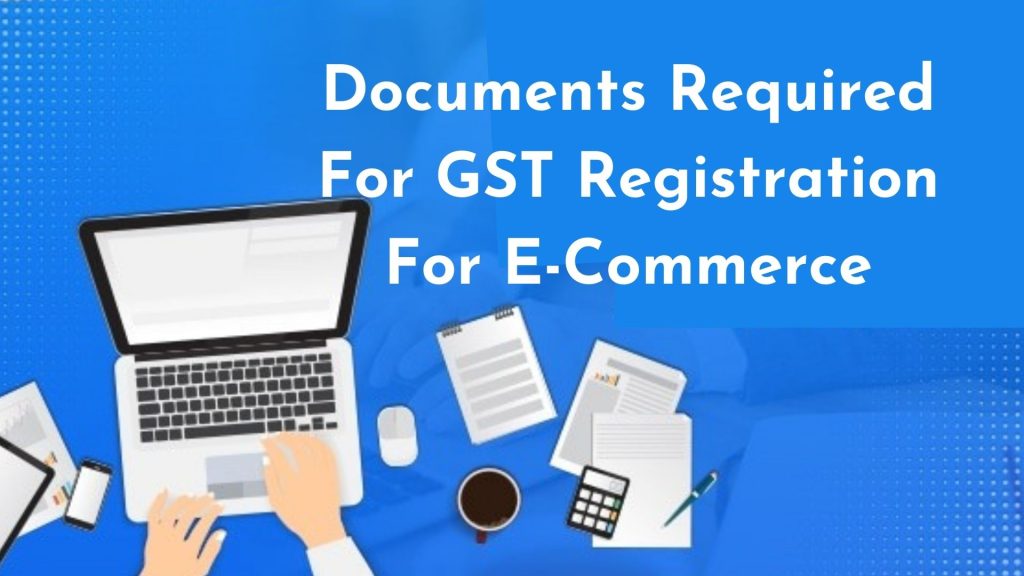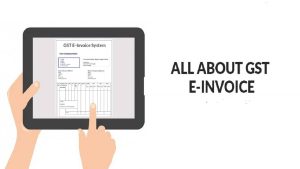The term “e-commerce” refers to businesses and individuals that purchase and resell goods and services online. E-commerce can be done on computers, tablets, cellphones, and other smart devices, and it operates in a variety of market categories. E-commerce transactions make almost every good or service conceivable accessible, including books, music, airline tickets, and financial services like stock trading and online banking.

Documents Required For GST Registration For E-Commerce Are As follows –
All E-commerce businesses in India need to have a GST registration certificate.
You must provide the following documents in order to be given a gateway for your eCommerce company.
- PAN Card.
- Photograph of Owner/Authorized Signatories.
- Phone Number & Email ID.
- Proof of Business & it’s address.
- Bank Account Details.
- List of Goods & Services.
- Proof of Appointment for Authorized Signatories.
- Digital Signatures.
Here’s a step-by-step guide on how to start your own eCommerce business in India.
To that end, depending on your e-commerce firm’s funding, you may choose b/w having a single line of products and having numerous product lines.
Single-vendor marketplace
The advantage of using this eCommerce business model is that it just has two entities: a single vendor who offers his or her items to several customers.
Multi-vendor marketplace
This method necessitates the sale of numerous merchants’ commodities to different clientele, each of whom must be registered with your site.
Brand your brand
Once you’ve decided on the business plan you’ll employ to build your eCommerce firm, as well as the product or goods you’ll provide and the target demographic you’ll sell to, the following step is to come up with a name for your brand.
- Short and easy to remember
- Reflective of your brand
- Unique and usually does not have another meaning in another language
Register your e-commerce business
The kind of registration you’ll require depends on your business’s region and type. Identify such characteristics first, and the registration process will be much easier.
For the majority of small businesses, establishing their company is as easy as registering their business name with state and municipal agencies.
You may not need to register in certain circumstances. You won’t have to register anyplace if you run a business under your legal name. But keep in mind that if you don’t register your firm, you risk losing personal responsibility protection, legal perks, and tax advantages.
Establishing a bank account
You must open a bank account for your company after it has been legally constituted under the Act. The account may be established with any bank, but it must be opened in the official name of the firm.
Build your e-commerce website
You must decide if you want to self-host it or hire someone to oversee and manage it on a daily basis.
Every day, you must guarantee that numerous posts are updated and published on your site, whether they are data on the services your eCommerce firm offers or just images of your merchandise.
Payment Gateway
A payment gateway is required to accept consumer payments on a proprietary eCommerce website. The payment gateway allows the website to accept payments from a number of banks and credit card issuers through credit card, debit card, net banking, and internet banking. As a consequence, taking a variety of online payments requires just one payment gateway. When a customer makes a payment, the funds are sent to the firm’s bank account through the payment gateway provided within one or two business days.
- Bank account in the name of the business
- PAN card of the business
- Certificate of Incorporation
- Memorandum of Association
- Articles of Association
- Identity proof
- Address proof
- Website terms of use
- Website privacy policy
Legal Documents
When selling online, it is vital to protect the firm and its promotion by implementing a solid terms and conditions agreement and privacy policy. In the case of a proprietary eCommerce website, the business would have to create the terms and conditions, disclaimer, and privacy policy based on the nature of its operation and online commodities.
If the company sells via online marketplaces, the marketplace will provide the legal document or seller’s agreement, which the seller must follow. Before engaging in a transaction with a seller, every company must read the seller’s agreement.



